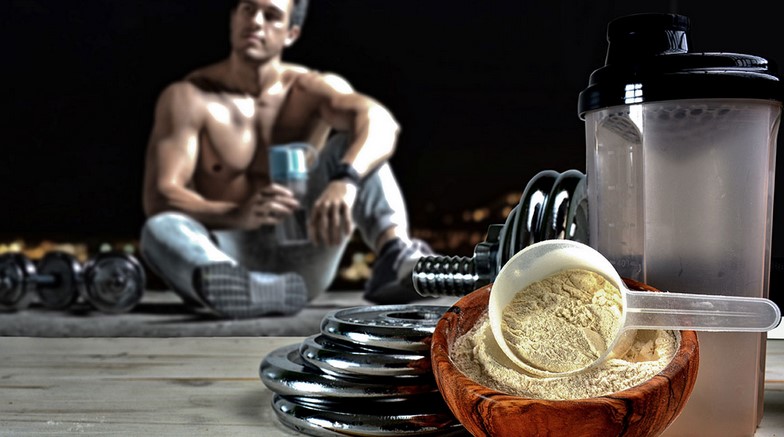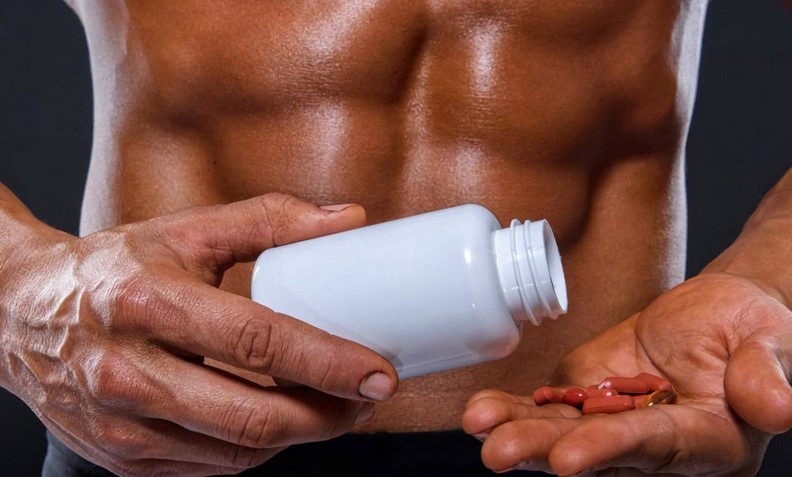We’ve all seen advertisements for creatine supplements promoting its use for muscle growth and strength. And if you’re like me, you’ve bought a few creatine powders to add to your protein shakes. But what are the actual benefits of creatine? We’ll answer these questions below. ATP production is one of the main benefits of creatine, so it’s important to get the right amount.
Creatine is one of the most talked about sports supplements. It’s extremely cheap, easily accessible and can be used by almost anyone. Creatine can improve strength, increase lean muscle mass, and help the muscles recover more quickly during exercise. This muscular boost may help athletes achieve bursts of speed and energy, especially during short bouts of high-intensity activities such as weight lifting or sprinting.

Muscle growth
Creatine is a mineral that helps the body build lean muscle tissue. Supplementing with creatine may help prevent bone loss. In a study, creatine supplementation was associated with an increase in total body and fat free mass. This compound also improved upper and lower body strength. While creatine supplementation may help prevent age-related muscle wasting, it is important to take this supplement in conjunction with resistance training.
The research supports this claim. Studies have shown that creatine can increase one-rep max strength in healthy people. A review paper published in 2003 evaluated 16 studies and found that the subjects who took creatine experienced a 15% increase in strength compared to placebo subjects. However, creatine is not the only supplement that can improve muscle growth. In fact, it may be able to prevent some muscle problems such as osteoporosis.
Strength
You may have heard about the Strength benefits of Creatine, but what exactly does it do? Creatine works by transporting energy within cells. This energy is converted into adenosine diphosphate (ADP) and adenosine monophosphate (AMP). Creatine exists in your cells in the form of creatine phosphate. This compound donates a phosphate group to ADP, which turns it into ATP. Creatine phosphate is an amino acid and has a phosphorus structure, so it has great energy-giving potential.
There are two types of supplements. Both can improve muscle strength. Creatine monohydrate is superior to pre-exercise creatine. It may improve your body composition by influencing your adaptive response to exercise. In one study, participants who took creatine for 32 days increased lean body mass while increasing muscle thickness. It also improved their bench press. Therefore, creatine can be used as a supplement to increase strength and size of lean muscle.
Energy
Creatine supplements are packed with energy-supplying compounds that have numerous benefits for the brain and nervous system. ATP, which is the body’s primary energy source, is converted into other forms such as ADP and AMP when it reaches a lower energy level.
Creatine, in particular, aids ATP synthesis. It also improves motor neuron operations and enables smoother movement of muscles. It also helps in the prevention of neurological diseases and boosts dopamine levels.
Creatine supplements increase the production of ATP, the main source of energy in muscles. Exercise is intense, and the breakdown of ATP causes the muscles to lose energy. Creatine improves the capacity of these muscle cells to produce ATP and maintain optimum performance for longer periods. It may also help in the treatment of neurological conditions, reducing fatigue and dizziness, and improving stamina. Creatine is available in supplements, but the benefits vary by individual.

ATP production
Creatine is a naturally occurring compound with three phosphate groups that supports muscle function. When used by the body, it replenishes the phosphate pool needed for ATP production and brain cell energy. When consumed, it increases the body’s internal creatine pool by 10 to 40% depending on diet and total lean muscle mass. In addition to increasing the amount of internal creatine, it also promotes accelerated ATP synthesis. Consequently, a person can perform longer, heavier, and more intense physical activities without worrying about running out of energy.
The first step in the synthesis of creatine occurs in the kidneys and liver, where it gets its methyl group from methionine. Exercise and various hormones, such as insulin-like growth factor, influence the rate of this process. Once produced, creatine undergoes phosphorylation by an enzyme called creatine kinase, which then converts the molecule into adenosine diphosphate.
The bottom line is that creatine can improve performance for athletes and non-athletes alike. It can help you to build lean muscle mass, increase your strength, and achieve bursts of speed and energy during exercise. And more research is coming out each year showing just how effective creatine can be in all of these areas. So if you’re looking to improve your athletic performance or simply gain an edge in the gym, creatine is worth a shot. And best of all? A standard serving size costs just pennies per day.

